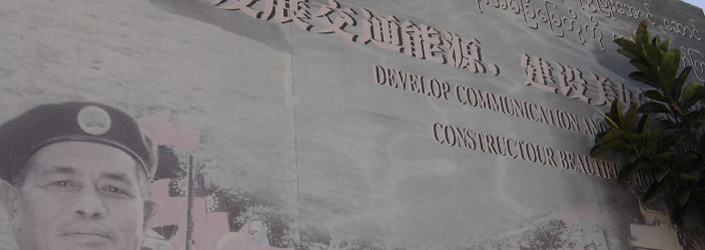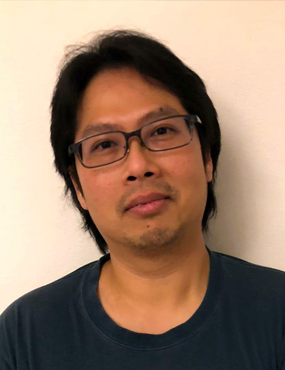A stint with the UN in then junta-controlled Myanmar sparked Dr Roger Huang's interest in the nation, and his first book explores Myanmar's political transformation from repressive regime to a nominally democratic government that hasn't shaken its military legacy. Dr Huang is a Lecturer in Terrorism Studies and Political Violence in the Department of Security Studies and Criminology.

How did you originally become interested in your area of research, and what keeps you interested in it?
After completing my MSc degree, I was offered an internship with the United Nations Office on Drugs and Crime in Yangon, Myanmar. Just a year earlier, then U.S. Secretary of State, Condoleezza Rice, publicly called out Myanmar as one of the “outposts of Tyranny.” It was a peculiar experience living and working in a relatively ‘closed’ society where secondhand newspapers and magazines were routinely smuggled in by overseas travelers. Spending a six month stint in Yangon was a political wakening of sorts. It not only shaped my interest in Myanmar, but informed my research interests more broadly in authoritarian regimes and political violence.
Why is your research important?
There has been a global resurgence of authoritarianism, and a steady increase in authoritarian practices within what we would ordinarily consider to be liberal democracies. In my book The Paradox of Myanmar's Regime Change, I demonstrate that despite a genuine reconfiguration of political power following the dissolution of the Myanmar junta, the ongoing role of the military, as set out in Myanmar’s Constitution, does not bode well for the country’s democratic prospects. External pressure in the form of military, political, or economic coercion have, more often than not, failed to persuade any closed political systems to democratize. We can only start to understand how liberal, democratic societies are fostered by understanding why authoritarian regimes persist. Unfortunately, even in many democratic societies, it appears that increasing societal polarization has led to regression of genuine pluralism, while many populists and opportunists are actively fostering a culture of anti-intellectualism.
What would people be surprised to know about you?
Although I am technically Taiwanese-American, I have lived in seven countries, and grew up in Bangkok, Thailand. Given my multiple identities as well as nationalities, I was able to vote in three different elections in 2016 - the US presidential election, the Taiwanese presidential election, and the Hong Kong Legislative Council election.
What is on your agenda for the remainder of 2020?
I am following political developments in Myanmar closely, albeit remotely while travel restrictions are still in place. Myanmar is due to have a general election later this year. It is also currently facing genocidal charges at the International Court of Justice. I am also eager to revisit my research interest in Taiwan’s security and international relations. The small island nation has demonstrated remarkable resilience in defending its democratic freedoms in the face of powerful and hostile political actions from China.
I am also looking forward to convening a new undergraduate unit - PICT3015 Security Policy Analysis: Current and Emerging Issues. Practitioners with expertise in the field, as well as colleagues from across the Faculty of Arts, will deliver a series of guest lectures exploring the diversity of contemporary security challenges from epidemiology to biosecurity. Given the pandemic we are currently living through, these contemporary security challenges feel more important to address than ever.
What’s your proudest achievement at Macquarie?
It is always rewarding when students reach out to say that they have enjoyed my courses, or that they have been inspired to pursue a particular career path. Apart from teaching, it is humbling to be invited by the media, think tanks, and other experts in the field to share my perspectives and research findings. The publication of my first book, while a proud moment, has been an anticlimactic experience given the pandemic. Although the book was published in May, I have not seen a physical copy of the book yet!
Outside your own, what area of work or research in the Faculty of Arts inspires or intrigues you?
I am impressed by the diversity of research in the Faculty of Arts, and how our colleagues advance understandings of the humanities and social sciences. I am a member of the Faculty’s Activism, Rights and Justice stream led by Amy Barrow from the Law School and Sara Fuller from the Department of Geography and Planning. Unfortunately as much of last year was spent on finalizing my book manuscript, I have had little opportunity to participate in the stream’s activities, but I hope that will change this year. I am also intrigued to learn more about cybersecurity. The exponential growth of online activities has a significant impact on society. I am keen to understand more about the role of cybersecurity in responding to the accelerated spread of misinformation and disinformation.